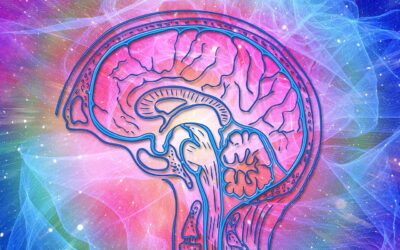Life Quotes by Albert Camus: Timeless Lessons on Absurdity, Freedom, and Meaning

Albert Camus, the French-Algerian philosopher, writer, and journalist, is one of the most influential thinkers of the 20th century. He is best known for his exploration of the human condition, particularly through the lens of absurdism, a philosophy that grapples with the conflict between humanity’s search for meaning and the indifferent, often chaotic nature of the universe. Camus’ reflections on life, death, freedom, and rebellion have shaped how many think about existence and our place in the world.
In this article, we explore some of the most powerful life quotes by Albert Camus and uncover the deeper lessons they offer about embracing life’s inherent contradictions and uncertainties.
1. “In the depth of winter, I finally learned that within me there lay an invincible summer.”
This quote captures Camus’ profound understanding of human resilience. Despite the inevitable hardships and emotional winters that life brings, there is an “invincible summer” inside each of us—a core of strength, hope, and warmth that can carry us through even the darkest times. Camus believed in the power of inner strength, even when the external world appears hostile or meaningless.
Takeaway: No matter how challenging life gets, there is always a source of strength within us. Our capacity for hope and endurance allows us to navigate even the harshest of conditions.
2. “The only way to deal with an unfree world is to become so absolutely free that your very existence is an act of rebellion.”
Camus’ philosophy of absurdism often emphasizes the importance of personal freedom in the face of an absurd universe. He believed that in a world where external freedom might be restricted by societal norms or political systems, true freedom comes from living authentically and rejecting conformity. By asserting individuality and personal values, we become rebels against the forces that attempt to impose meaning on us from the outside.
Takeaway: True freedom lies in living according to your own values and principles. In a world that often tries to control or limit individuals, choosing to live authentically is itself a form of rebellion.
3. “Man is the only creature who refuses to be what he is.”
In this quote, Camus touches on humanity’s unique capacity for self-denial and its refusal to accept the limits of existence. Unlike other animals that live according to their nature, humans often struggle against the realities of life—seeking higher purpose, meaning, or transcendence. This constant search for something beyond our nature leads to the tension at the heart of the absurd.
Takeaway: Humanity’s refusal to accept its limitations is both a source of conflict and growth. While the struggle for meaning is inherent to the human experience, accepting who we are can lead to a deeper understanding of life.
4. “There is no love of life without despair of life.”
Camus believed that to truly love life, one must first confront and accept its inherent pain and despair. Life is filled with suffering, uncertainty, and the inevitability of death, but rather than being disheartened by these truths, Camus saw them as essential to a deeper appreciation of life. By embracing the absurdity and the suffering, we can find a more profound joy and love for existence.
Takeaway: Life’s beauty and joy are inseparable from its pain and despair. By accepting life’s hardships, we open ourselves up to a more genuine love and appreciation for the moments of happiness.
5. “Live to the point of tears.”
This short yet powerful quote speaks to Camus’ belief in living fully and passionately, embracing both joy and sorrow without reservation. He encouraged a life lived with emotional intensity and authenticity, where experiences are deeply felt and appreciated. For Camus, life was meant to be lived to its fullest, even if that fullness includes moments of sadness or vulnerability.
Takeaway: Embrace life in its entirety—experience your emotions deeply and authentically. Don’t shy away from feeling both the highs and lows that come with living a full life.
6. “The purpose of a writer is to keep civilization from destroying itself.”
While Camus was known for his philosophical works, he was also a journalist and a novelist, using his platform to address the societal and political issues of his time. This quote reflects his belief that writers—and by extension, artists—have a responsibility to challenge society, offer new perspectives, and promote critical thinking. In a world that often succumbs to injustice, corruption, or apathy, writers must shine a light on uncomfortable truths to prevent self-destruction.
Takeaway: Writers and artists play a critical role in shaping society by encouraging reflection, self-awareness, and progress. They have a duty to speak truth to power and question the status quo.
7. “You will never be happy if you continue to search for what happiness consists of. You will never live if you are looking for the meaning of life.”
Camus consistently argued against the idea that life has some grand, preordained meaning. Searching for a universal truth or the “secret” to happiness can distract us from the actual experience of living. For him, happiness and meaning arise from embracing life as it is, in all its chaos and uncertainty, rather than endlessly searching for elusive answers.
Takeaway: Stop searching for meaning or a fixed formula for happiness. Focus instead on the richness of life’s daily experiences, and happiness will emerge organically.
8. “I rebel; therefore I exist.”
Camus viewed rebellion as an essential part of human existence. This doesn’t necessarily mean political rebellion, but a deeper, philosophical form of rebellion against the absurdity of life. By rebelling against the meaninglessness of the universe—through creativity, love, and action—individuals assert their existence and their freedom. It is through this act of defiance that life gains significance.
Takeaway: To live authentically is to rebel against the meaningless aspects of existence. By choosing to act, create, and live according to your values, you assert your existence in the face of absurdity.
9. “Seeking what is true is not seeking what is desirable.”
For Camus, the pursuit of truth is a noble, if difficult, endeavor. He understood that the truth is often harsh and uncomfortable, while illusions and comforting lies can be more desirable. This quote challenges us to face reality as it is, rather than clinging to illusions that make us feel better but ultimately keep us from understanding the world and ourselves.
Takeaway: Don’t settle for comforting illusions—seek the truth, even if it’s uncomfortable. True growth and understanding come from confronting reality as it is.
10. “What is a rebel? A man who says no.”
Camus defines rebellion as the act of refusal—saying “no” to oppression, injustice, or anything that denies personal freedom and authenticity. A rebel is someone who refuses to accept conditions that compromise their integrity or values. In doing so, the rebel affirms their individuality and humanity.
Takeaway: Rebellion begins with the courage to say no. By refusing to accept what compromises your values, you claim your freedom and dignity.
11. “The struggle itself toward the heights is enough to fill a man’s heart. One must imagine Sisyphus happy.”
This final quote comes from Camus’ most famous philosophical essay, The Myth of Sisyphus. In the myth, Sisyphus is condemned to an eternity of pushing a boulder up a hill, only to watch it roll back down each time he nears the top. Camus saw this as a metaphor for human existence—filled with repetitive, often futile tasks. Yet, rather than seeing Sisyphus’ plight as tragic, Camus believed that the very act of struggle could bring fulfillment. By embracing the effort itself, we find meaning in the journey, not the destination.
Takeaway: Life’s challenges may seem repetitive or absurd, but meaning comes from the struggle itself. Embrace the journey, and you will find purpose and fulfillment.
Embracing Camus’ Philosophy in Everyday Life
Albert Camus’ life quotes challenge us to reconsider how we approach existence. Rather than seeking external validation, fixed meaning, or comfort, Camus encourages us to embrace the inherent chaos of life and find our own path through it. His reflections on absurdity, freedom, and rebellion offer profound insights into how we can live more authentically, finding meaning not in grand external truths, but in the everyday act of living fully and consciously.
Camus’ quotes are reminders that life’s absurdity does not diminish its value—on the contrary, it makes the experience of living all the more precious. By facing life’s contradictions head-on, we can live with courage, curiosity, and an unwavering commitment to our own personal freedom.









